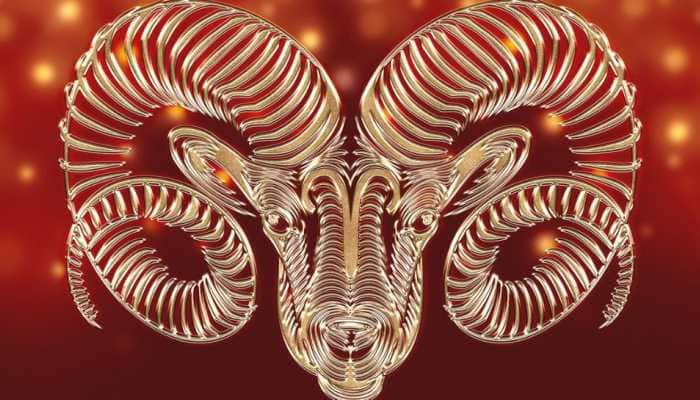Persistent Cough To Sudden Weight Loss - Early Signs Of Lung Cancer To Watch Out For And Steps To Take
While smokers are more at risk of lung cancer, the disease can affect anyone, with the risk increasing because of the growing pollution levels across Indian cities. Doctors say it is crucial to pay attention to the subtle signals our bodies provide for early diagnosis and effective treatment
- A persistent cough, lingering for over a week or two, should never be ignored
- Shortness of breath or easy fatigue might indicate lung diseases, including lung cancer
- Cancer can lead to overall feelings of weakness, malaise, and fatigue
Trending Photos
) Pay heed to persistent coughs (Image by Freepik; for representational purposes)
Pay heed to persistent coughs (Image by Freepik; for representational purposes) With the air quality across India's major cities - and particularly Delhi-NCR - deteriorating, health concerns have been growing. Explaining this, Dr Shivali Ahlawat, Lab Director, Oncquest Laboratories Ltd, shares, "The air we breathe, a basic necessity for life, has become a potential threat, harbouring the risk of a deadly disease – lung cancer. Though lung cancer is more common in smokers, it can affect anyone, and this is even more important due to the alarming levels of pollution engulfing our urban centres. It is crucial to pay attention to the subtle signals our bodies provide, as detecting issues early can be a vital factor in successful treatment."
Lung Cancer: Early Signs
Dr Shivali Ahlawat unravels the early signs of lung cancer that demand attention and emphasises the significance of prevention, diagnosis, and available treatments:
1. Persistent Cough
A persistent cough, lingering for over a week or two, should never be ignored. Whether accompanied by mucus or dry, it can signify an underlying issue, potentially lung cancer. Coughing up blood can also indicate a tumour infiltrating the airways. Seeking medical advice for a thorough evaluation is crucial in such cases.
2. Change In Breathing
Shortness of breath or easy fatigue might indicate lung diseases, including lung cancer. Tumors obstructing air passages or fluid accumulation within the lungs can cause these symptoms. If breathing becomes increasingly complex, it's time for a medical consultation.
3. Chest Pain
Consistent chest pain radiating to the shoulders or back can indicate the location of lung cancer within the lungs. Enlarged lymph nodes or metastasis often trigger this pain. Any persistent chest discomfort warrants immediate medical attention.
4. Head And Bone Aches
Persistent headaches and bone aches, significantly worsening at night, might signal the spread of lung cancer to the brain and bones. Seeking medical advice promptly can help in managing these symptoms effectively.
5. Blood Clots
Lung cancer elevates the risk of developing blood clots, potentially leading to deep vein thrombosis (DVT) in the legs or pulmonary embolism (PE) in the lungs. Sudden breathlessness can indicate a clot travelling to the lungs, necessitating urgent medical intervention.
6. Unexplained Weight Loss, Fatigue, And Weakness
Cancer can lead to overall feelings of weakness, malaise, and fatigue. Poor appetite and unexplained weight loss can also occur.
Also Read: EXCLUSIVE: India's first cervical cancer vaccine - What causes cervical cancer, who can take vaccine & when
Lung Cancer: Prevention, Diagnosis, And Treatment
"Preventing lung cancer involves adopting a healthy lifestyle, avoiding tobacco products, and minimising exposure to environmental pollutants. Regular exercise, a balanced diet, and maintaining a healthy weight significantly reduce cancer risks," says Dr Ahlawat.
For diagnosis, various imaging tests such as X-rays, CT scans, and MRI scans are employed to detect lung abnormalities. Additionally, biopsy procedures are performed to confirm the presence of cancer cells, Dr Ahlawat adds.
The doctor explains that treatments for lung cancer include surgery, chemotherapy, radiation therapy, targeted therapy, and immunotherapy. The choice of treatment depends on the cancer stage, its type, and the overall health of the patient. Early detection enhances the efficacy of these treatments, emphasizing the importance of recognizing and acting upon the early signs of lung cancer.
"In a nutshell, lung cancer can affect anyone, emphasising the critical need for awareness regarding its early symptoms. By understanding and acknowledging these signs, individuals can seek timely medical help, potentially altering the course of the disease. Through prevention, early diagnosis, and advances in treatment, we can combat lung cancer effectively and offer hope to those affected by this difficult illness," Dr Ahlawat shares.







)
)
)
)
)
)
)
)
)
)
